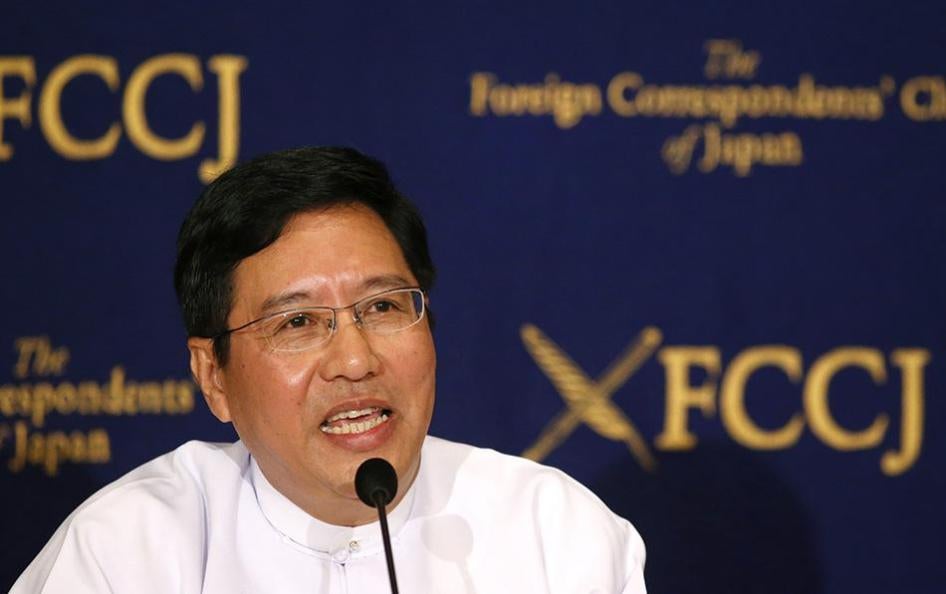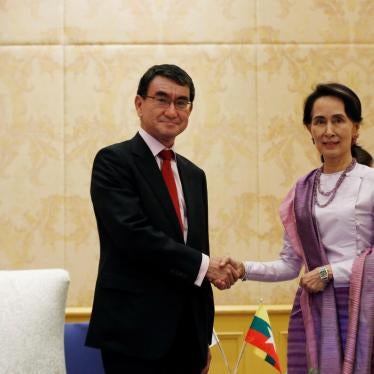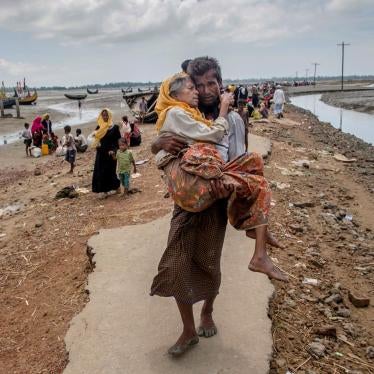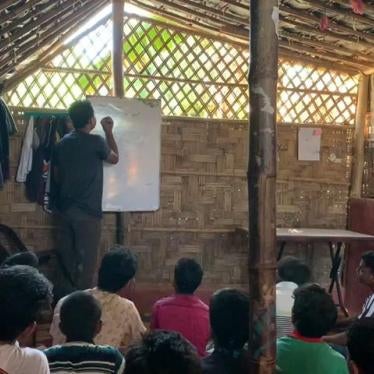Braving the sweltering summer heat, more than 100 businesspeople gathered in central Tokyo on Aug. 6 to get the latest update on Myanmar’s economy. Participants were showered with promises of lucrative investment opportunities in sectors including health, education and infrastructure, and repeatedly told about the two countries’ wonderful bilateral relationship.
A sobering breeze set in, however, when the keynote speaker, Myanmar Ambassador to Japan Thurain Thant Zin, was asked about the United Nations-mandated Fact-Finding Mission’s latest 111-page report on the Myanmar military’s business ties. Among the Japanese companies noted in that report are beer manufacturer Kirin Holdings, for providing financial support to the military, and tobacco manufacturer Japan Tobacco, for having a joint venture with military-operated Myanmar Economic Corp. (MEC).
Kirin Holdings publicly acknowledged last year after an investigation by Amnesty International that it donated $6,000 for “humanitarian assistance” to the Rakhine state government in 2017. After an internal investigation last December, Kirin admitted it could not determine whether the donation was used for said purposes. Japan Tobacco denied having a joint venture with MEC.
Ambassador Thurain Thant Zin dismissed the report as written based on “emotion” and “sentiment.” He also claimed it offered no “evidence,” but he, in turn, provided no evidence to support his views, opting to shoot the messenger instead of substantively responding to the serious allegations made by the FFM.
The report follows a 2018 investigation by the fact-finding mission that found that Myanmar security forces committed horrific abuses against ethnic Rohingya Muslims, including mass murder, rape and widespread arson that “rise to the level of both war crimes and crimes against humanity.” The mission’s chairman later described the situation as “an ongoing genocide.”
Two years since the ethnic cleansing campaign began in August 2017, more than 740,000 Rohingya have fled across the border into Bangladesh, where nearly 1 million refugees now live in precarious, overcrowded camps.
In its recent report, the fact-finding mission urged the international community to “sever ties with Myanmar’s military and the vast web of companies it controls and relies on,” as “any foreign business activity involving the Tatmadaw [military] and its conglomerates MEHL and MEC poses a high risk of contributing to, or being linked to, violations of international human rights law and international humanitarian law. At a minimum, these foreign companies are contributing to supporting the Tatmadaw’s financial capacity.”
The ambassador’s abrupt dismissal of the report isn’t a surprise. In fact, it’s consistent with the Myanmar government’s refusal to work with the international community in pursuing justice for the Rohingya, including blocking both the fact-finding mission members, and United Nations Special Rapporteur on Myanmar Yanghee Lee, from entering Myanmar to conduct its investigation.
Instead, what comes as a surprise is how Japan’s private sector has been conducting business as usual while sidelining one of the world’s worst humanitarian and human rights crises. This comes at a time when the Japanese government has abstained from all Myanmar-related U.N. resolutions in recent years, even refusing to use the word “Rohingya.”
In Tokyo, following in the footsteps of the Rakhine Investment Fair in February, the Japan External Trade Organization hosted an investment seminar July 24 about business opportunities in Myanmar. Without going into detail, a JETRO official mentioned the Rohingya crisis in passing while discussing a small slump in Myanmar’s GDP in 2017.
At an investment forum Aug. 6, Ambassador Thurain Thant Zin described Japan and Myanmar as “brothers,” and did not mention the Rohingya crisis until he was questioned by an audience member about the fact-finding mission report. On Aug. 27, just two days after the two-year mark since the Myanmar military began its massive assault on the Rohingya, another investment forum backed by JETRO is planned just outside of Tokyo. Again, the Rohingya refugee crisis isn’t on the agenda.
Considering China’s growing presence in the region, including its investments in Myanmar recently superseding Japan’s, it seems likely that Japan will continue to sideline the Rohingya crisis in favor of competing for regional influence and corporate profit. The same strategy of ignoring human rights and prioritizing a battle for influence against China is observable in Japan’s diplomacy toward other Southeast Asian countries, including Cambodia and Vietnam.
Tokyo needs a change in approach. Japan’s private sector should begin implementing the U.N. Guiding Principles on Business and Human Rights, which provides that business enterprises have a responsibility to respect human rights by avoiding causing or contributing to human rights abuses through their own activities, and seek to prevent abuses that are directly linked to their operations by their business relationships. That would mean doing no business with Myanmar companies that have ties to the military. Irresponsible investment will only embolden the Myanmar government and military to further whitewash the heinous acts committed against the Rohingya.
At the same time, the Japanese government should cooperate with the international community in pursuing accountability for the Myanmar military’s crimes against the Rohingya. This includes voting in favor of Myanmar-related resolutions at the U.N. that press Myanmar to change its behavior, demanding access for the U.N. special rapporteur and new investigative mechanism, and contributing to all efforts aimed at holding the Myanmar military accountable for its gross violations of human rights.










